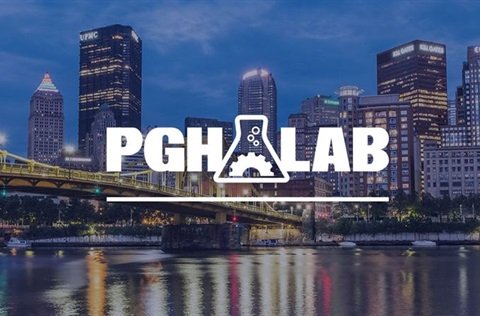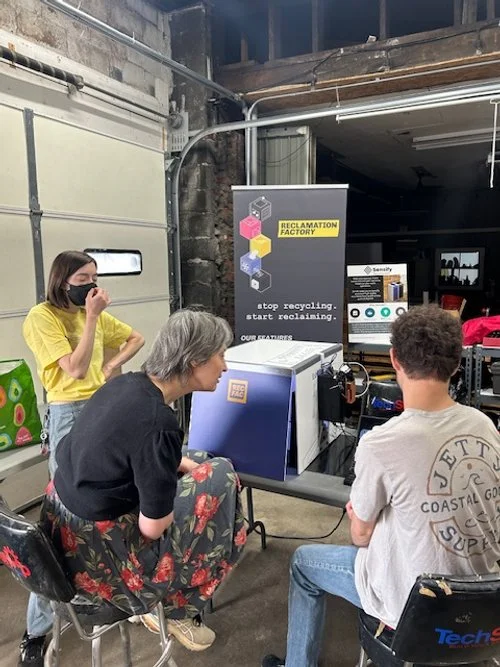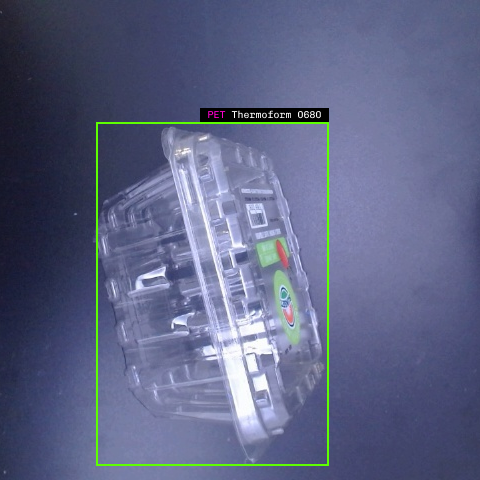Reclamation Factory Completes PGH Lab 10.0 Pilot: Advancing Plastic Recycling in Pittsburgh
Written by Georgia Crowther, Founder and CEO
From February through July 2025, Reclamation Factory collaborated with the City of Pittsburgh’s Department of Public Works to test our plastic waste identification and tracing platform through the PGH Lab 10.0 pilot program.
PGH Lab, run by the City’s Office of Innovation and Performance, pairs local startups with city departments to improve services and test new technologies. Our goal was to demonstrate low-infrastructure solutions for hard-to-recycle plastics. Through our 6 months of testing and development, we generated a database of common plastic waste, trained machine learning models to sort plastic to bail APR specifications, and built a back-end platform for tracing plastic from source to destination. At the same time, we gathered insights from residents, recyclers, and secondary buyers to help us understand both the technical challenges and the human side of recycling behavior.
Community Collection and Plastic Data
Volunteers gather to help build and label a plastic waste dataset
To collect real-world samples, we organized collection events with local recycling non-profit Reimagined Recycling and collected waste from the Pittsburgh Parks Conservancy offices.
In total, we collected nearly 300 lbs of plastic waste from across the city. Every item was imaged, tested, and hand-labeled, creating a database of 10,000+ plastic images with detailed labels for resin, form, color, and features. This database is now a foundation for improving ML-driven plastic classification and recycling efficiency.
Recyclable plastics were then redirected into local reuse and remanufacturing streams. You can learn more about our data collection process through Tanisha Khabe’s blog post.
What We Learned from Residents
Everyone attending plastic collection events and the general public were encouraged to complete a survey on their plastic recycling knowledge and habits. Through both our survey results and interviews with residents, we learned that:
Motivation is high—many Pittsburgh residents are willing to put in extra effort to recycle correctly
Confusion persists—even dedicated recyclers often misidentify what can be recycled
Access is the barrier—better recycling outcomes require more infrastructure and clear systems
Pilot Recycling Results
Though most of the plastic we collected was not recyclable in municipal streams, it was, in fact, recyclable. Through working with local partners, we were able to divert a majority of this waste.
80% of collected plastics (by weight) were successfully diverted from the landfill
Most of the waste we collected was PET and PP plastics—like clamshell containers, tubs, lids, and pill bottles—that the City’s material recovery facility (or MRF) could not collect
Of the plastics that went to landfill, 25% could have been recycled if they were properly cleaned
These results highlight the magnitude of the opportunity for improving our sorting and waste tracing infrastructure. Read Manasi Mehta’s blog post for a more in-depth review of the value of identification and tracing.
Machine Learning for Plastic Identification
Example machine learning output
We focused on training machine learning models to identify and sort the items that our local material recovery facility (MRF) struggled to separate - PET clamshells, PP tubs, and pill bottles. Our trained models were able to identify these waste items to bail specifications, proving the potential of this technology to supplement existing infrastructure and divert otherwise locally-unrecyclable plastics.
For a deeper dive into the technical side of our machine learning pipeline and results, read Dhivya Sreedhar’s blog post.
Key Takeaways
Access, not motivation, limits recycling success. Pittsburgh residents are ready to do their part when given solutions.
Data drives progress. Detailed waste identification data at multiple stages in the recycling process can help Pittsburgh test new education campaigns, trace waste from source to destination, and prove to residents the value and effectiveness of recycling
Pittsburgh is uniquely positioned to create high-tech zero-waste economy. As both a technology hub and a polymer manufacturing center, the city has all the stakeholders needed for a successful circular plastics economy. The city’s commitment to reaching a zero-waste future and the enthusiasm of Pittsburgh residents make it the ideal place to pioneer scalable solutions that can serve as a model for cities across the nation.
The Path Forward
The PGH Lab 10.0 pilot proved that scalable, data-driven plastic recycling solutions are possible today. Pittsburgh’s unique strengths offers our region a unique chance to become a national leader in innovative recycling technologies.
At Reclamation Factory, we’re committed to continuing this work—helping cities, recyclers, and communities make plastic recycling smarter, more accessible, and more effective.



